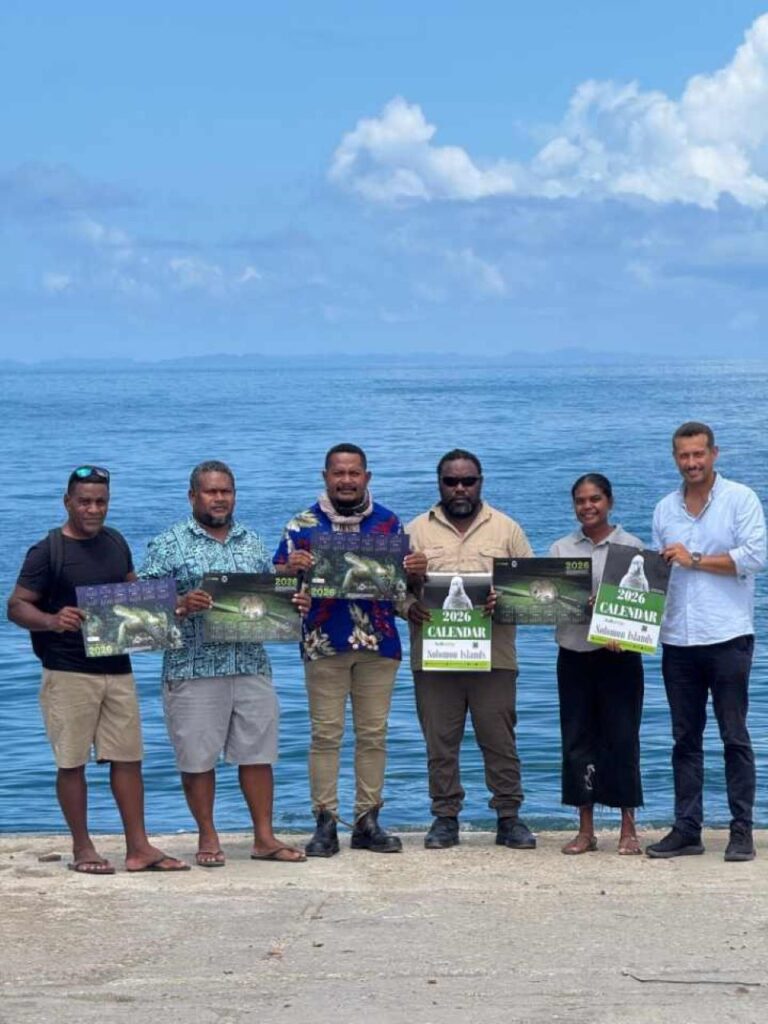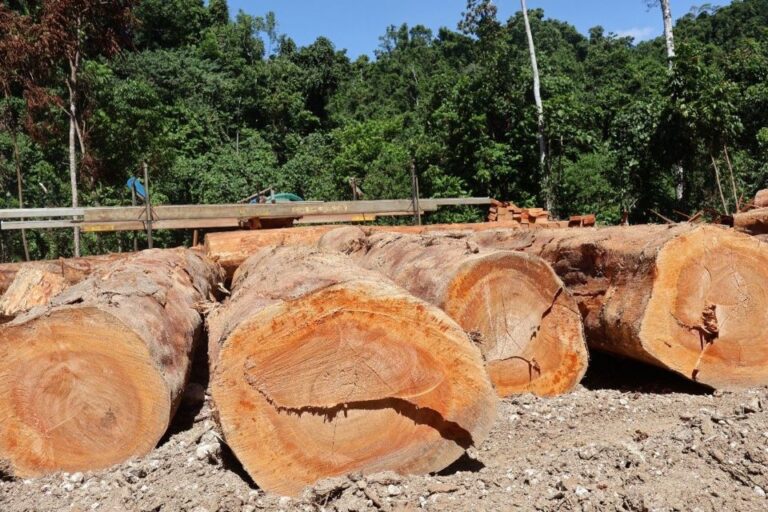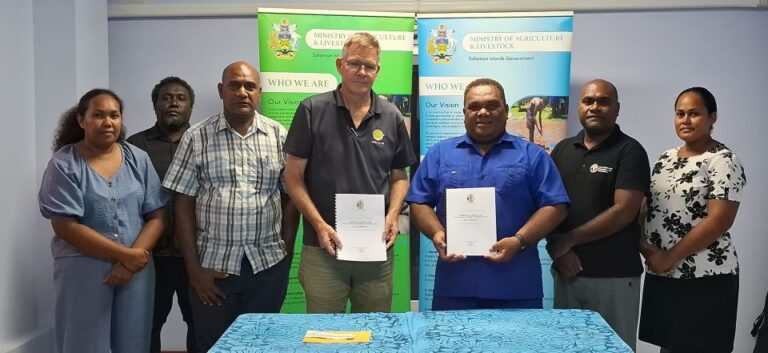The Government of Solomon Islands, in partnership with the Global Green Growth Institute (GGGI) with the support of the Government of Australia through the Department of Foreign Affairs and Trade (DFAT), yesterday launched the Strengthening Inclusive Adaptation Capacity in Solomon Islands (SIAC-SI) Project — a national flagship initiative to strengthen the country’s resilience to climate change and deliver its first National Adaptation Plan (NAP).
The SIAC-SI Project marks a historic milestone for the Solomon Islands’ climate resilience journey. It provides a long-term strategic roadmap to safeguard communities, ecosystems, and livelihoods across all provinces – which will build Solomon Islands climate resilience and position Solomon Islands to receive more international finance and foster economic development.
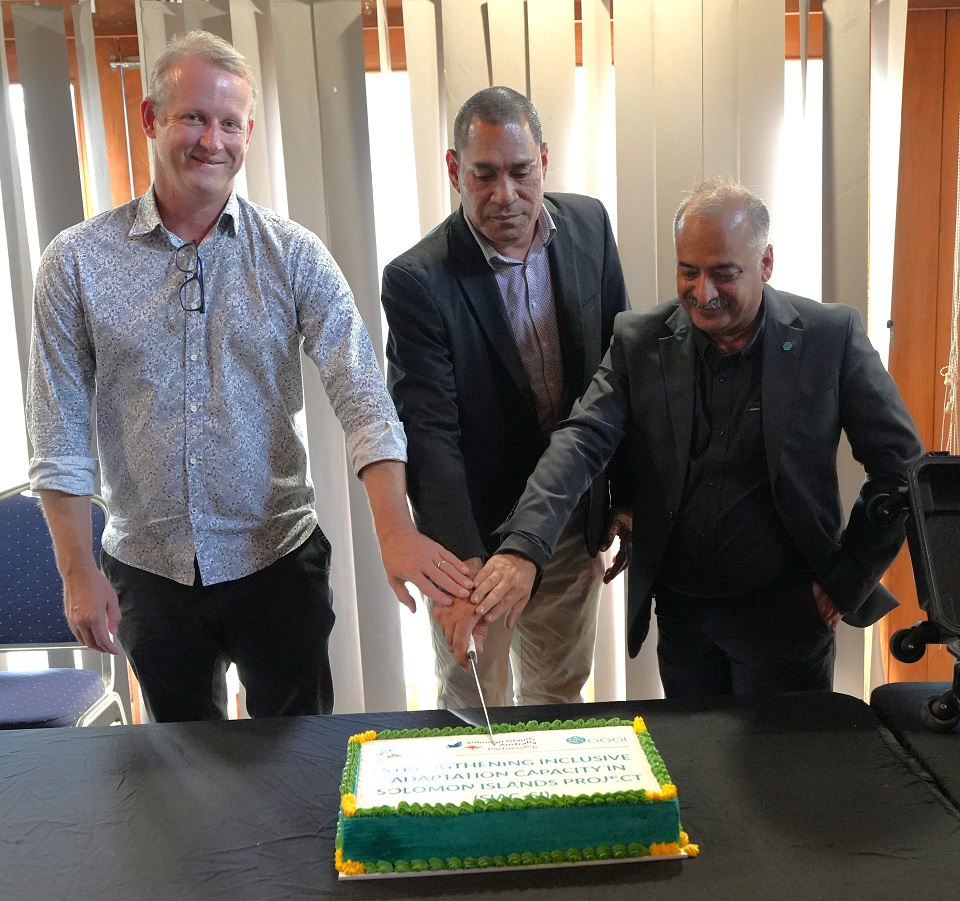
Solomon Islands faces some of the world’s highest climate risks — from rising sea levels, coastal erosion, and saltwater intrusion to intensifying tropical cyclones, flooding, and ocean acidification. With a population of around 800,000 living across 994 islands and 4,000 kilometers of coastline, the country’s vulnerability underscores the urgency for coordinated adaptation planning.
The SIAC-SI Project, jointly implemented by the Ministry of Environment, Climate Change, Disaster Management and Meteorology (MECDM) and GGGI, will strengthen inclusive, climate-resilient development to:
- Enable inclusive, climate-resilient economic development through improved use of climate data and delivery of the National Adaptation Plan.
- Strengthen adaptation planning, governance, and coordination by mainstreaming adaptation into national, sectoral, and provincial systems.
- Mobilize climate finance to support the resilience of vulnerable groups, ecosystems, and communities, ensuring inclusivity for women, youth, and persons with disabilities.
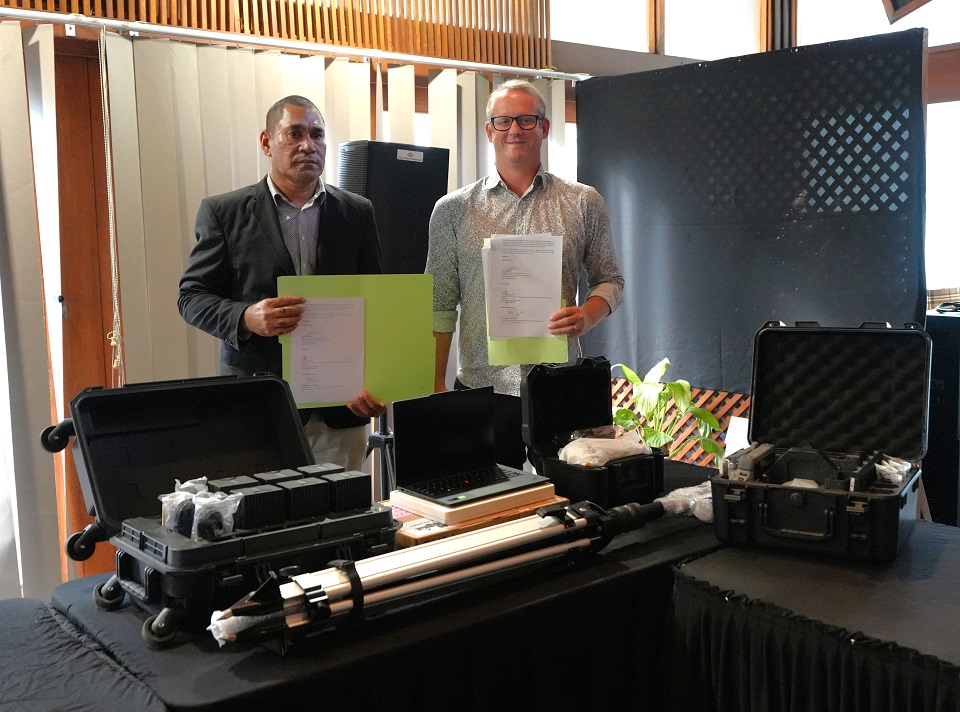
Anchored in science and inclusivity, the NAP will integrate findings from Climate Risk and Vulnerability Assessments (CRVAs) and the Solomon Islands Integrated Vulnerability and Adaptation Assessment (SIIVA) — combining national data with community-level realities to ensure adaptation strategies are evidence-based and locally grounded.
Speaking at the launch, representatives from the Solomon Islands Government, GGGI, and DFAT reaffirmed their shared commitment to building a climate-resilient future.
“The launch of the SIAC-SI Project and the development of our first National Adaptation Plan mark a defining moment for the Solomon Islands. For too long, our communities have faced the harsh impacts of climate change with limited resources and fragmented support. This initiative brings everyone together — government, development partners, and communities — to deliver one clear vision: a more resilient Solomon Islands,”Hon. Polycarp Paea, Minister for Environment, Climate Change, Disaster Management and Meteorology (MECDM).
“Australia welcomes the opportunity to partner with the Government of Solomon Islands and GGGI on this important flagship initiative. We are supporting inclusive, science-based adaptation planning that ensures all Solomon Islanders — especially the most vulnerable — are better protected from the impacts of climate change. This partnership reflects our shared commitment to build a resilient, secure, and sustainable Solomon Islands. It also demonstrates the regional leadership Solomon Islands is taking to both bring attention to the impact of climate change and respond with practical adaptation-based solutions”H.E. Rod Hilton, Australian High Commissioner to Solomon Islands.
“The SIAC-SI Project is more than a plan — it is a pathway to safeguard the Solomon Islands for future generations. Guided by local leadership and powered by strong partnerships, this effort combines data-driven planning with the voices of communities to ensure that adaptation solutions are both effective and inclusive,” GGGI Regional Director, Sakiusa Tuisolia.
“We are honoured to stand alongside MECDM and DFAT in this journey toward resilience. The National Adaptation Plan will serve as a national compass — aligning data, community priorities, and policy actions to ensure that every step we take strengthens the country’s adaptive capacity,” GGGI Solomon Islands Country Representative, Mohammad Ali Shaikh.
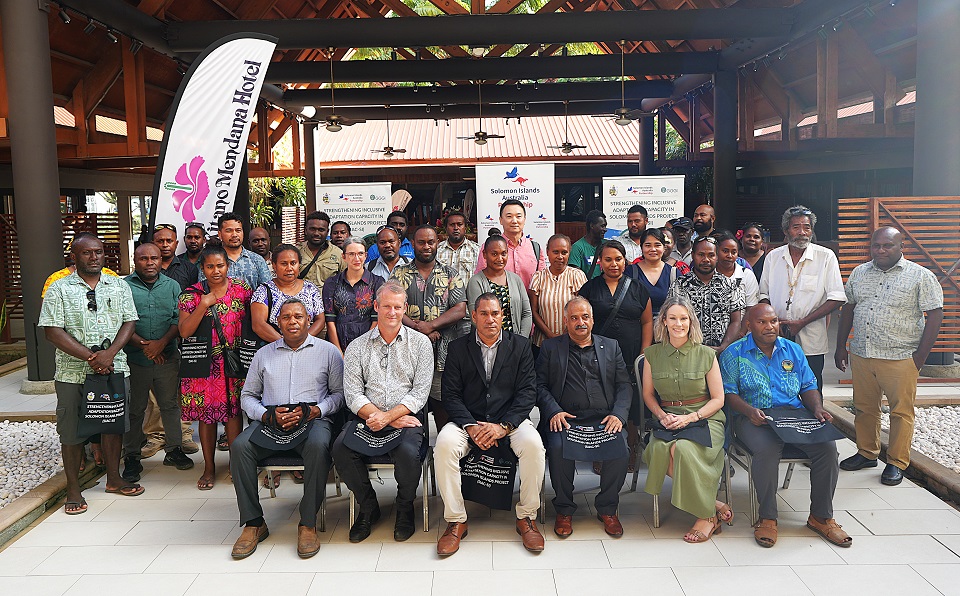
The launch concluded with the official handover of GIS equipment, symbolizing the start of a new chapter of partnership, innovation, and data-driven climate action.
The SIAC-SI Project aligns with the National Climate Change Policy (2023–2032), the country’s Nationally Determined Contribution (NDC) under the Paris Agreement and supports Sustainable Development Goal 13 – Climate Action.
Source: Australian High Commission, Solomon Islands


